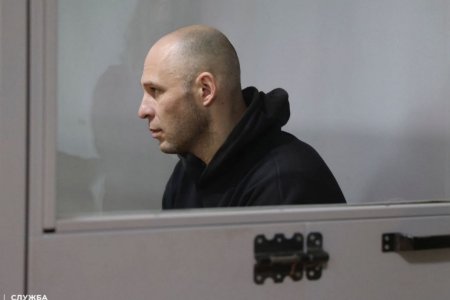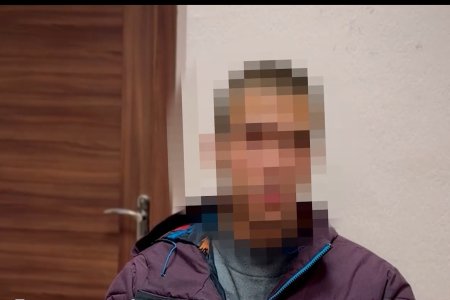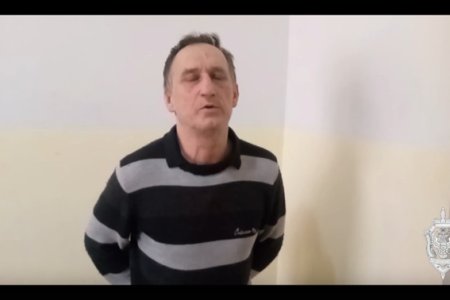
The article has been updated to include new information on the composition of the exchanged civilians.
From May 23 to 25, a thousand Ukrainians were released from Russian captivity. The large exchange was the result of negotiations that took place on May 16 in Istanbul. It was reported that among those who returned, 120 were civilians. This category of prisoners is the most difficult to return. Since international law allows the detention of civilians only in exceptional circumstances, there is no formal exchange procedure for them. Moreover, for the same reason, Russia does not acknowledge the fact that it is holding thousands of Ukrainian civilians captive.
From March 2022 to May 23, 2025, only 173 Ukrainian civilians were returned as part of many exchanges. Therefore, increasing this number by 120 people at once seems to be an essential step in solving the problem of the Kremlin’s civilian prisoners. So, who was returned?
— During the large exchange, 120 people who were convicted of crimes against the national security of Ukraine left Ukraine for Russia, — says Yevhen Zakharov, director of the KHPG. — It would be natural to expect that Ukrainian civilians who were tried for political motives and who were convicted for their pro-Ukrainian position, etc., would be returned from Russia to Ukraine. But that is not what happened. As we learned, among the 120 people whom Russia handed over to the Ukrainians, only one was a political prisoner, Pavlo Zozuliuk.
The only political prisoner

Pavlo Zozuliuk is a resident of Kakhovka and a paintball coach. As MI journalists reported, the occupiers kidnapped him for the first time on October 10, 2022, allegedly suspecting him of collaborating with the Ukrainian anti-terrorist forces. He was held for 12 days in the police station building on Melitopolska Street but then released. He was detained for the second time on July 27, 2023. During the search, they allegedly “found” Right Sector propaganda leaflets and a traumatic handgun. A month after the actual kidnapping, as usual, they shot a staged film about the “detention of a terrible extremist”, also with a “repentance” extracted under torture. Until mid-October, his family did not know anything about his fate until he sent a letter from Chongar, where he was being held in a pre-trial detention center. It turned out that the Russians had opened a criminal case against Pavlo for participating in the activities of the Right Sector in 2014-2016. In July 2024, propaganda media reported that Pavlo Zozuliuk had been sentenced to two years in prison, with the sentence to be served in a general-regime colony.
15 deportees
— Pavlo Zozuliuk had served his term and was supposed to be released, but the Russian Federation did not release him, and it was only through an exchange that he was returned, — says Yevhen Zakharov. — And he is the only political prisoner out of these 120 civilians exchanged. Another 15 prisoners who were returned are former convicts from Ukraine who committed crimes and were sentenced in Ukraine until 2022. Their places of detention were under occupation, and the Russians took these people out of the Kherson region to Russia. In total, the occupiers took out about three thousand prisoners from the occupied territories.
The deportation of prisoners from temporarily occupied Ukrainian territories to Russia, like any forced displacement of the population from an area under occupation, is a violation of international law, in particular the 1949 Geneva Convention for the Protection of War Victims. But this is not the only crime committed by the Russian state in this case because during the movement, people are kept in terrible conditions, often without access to legal and medical assistance, and they are forced to take Russian citizenship. Moreover, even when their prison terms have expired, it is challenging for deported prisoners to return home.
— The Russians offer those kidnapped Ukrainians whose sentences are ending to take a Russian passport and stay in the Russian Federation, — explains Yevhen Zakharov. — The majority refuse such an offer. Those who have Ukrainian passports are trying to leave either through Georgia or through the corridor that opens from time to time between Russia and Ukraine. Human rights activists, particularly the NGO “Protection of Prisoners of Ukraine”, are helping them get home. They are working together with Russian human rights organizations to evacuate these people to Ukraine. Those who do not have any documents are detained in Russia again, this time in deportation centers.

On May 23, 15 such deported prisoners were returned to Ukraine. At home, their time spent in the Russian Federation was credited towards their prison term. In a comment to Suspilne, legal advisor to the NGO “Protection of Prisoners of Ukraine”, Hanna Skrypka, said that three of the fifteen went to a pre-trial detention center after the exchange, where they will continue to serve their sentences. The rest are free.
Former prisoners
According to our information, all other exchanged civilians, 104 people, are Ukrainians who were serving sentences in Russian prisons for criminal offenses committed in the Russian Federation. Their sentences have expired, and they also ended up in deportation centers. They had no chance to return on their own. Many of them had neither documents nor money to return home. By law, they were supposed to be deported, but instead, they remained stuck in deportation centers in Russia.
— Many of my colleagues expressed disappointment; they expected that during the exchange, the Russians would hand over political prisoners who are serving together with prisoners of war, who are being tortured, etc., — emphasizes Yevhen Zakharov. — I understand them. I would also like these people to be returned, but in general, I must say that all Ukrainians who are in Russia should be returned, regardless of who they are and how they ended up there.
According to Hanna Skrypka, among the civilians who were returned last week, there are many victims of human trafficking. We wrote a lot about this before 2022. Ukrainians supposedly went to Russia legally to earn a penny — as cooks, sales managers, and builders. They ended up in slavery to criminals who took away their documents and mobile phones and instead gave them phones that could be used to track them and forced them to become drug couriers. When a Ukrainian realized what a mess he was in and tried to escape, his “employers” simply handed him over to the Russian police. The transnational criminal group of recruiters has been operating in Ukraine since at least 2015. Law enforcement officers assumed that the number of its victims could reach thousands. The criminal business had a very complex structure: with its own lawyers, security service, “human resources department,” and advertising managers.
Without money and documents
What will happen next with the prisoners released from Russian captivity? Hanna Skrypka says that most of them need state assistance. The NGO “Protection of Prisoners of Ukraine” is caring for 15 prisoners deported from the temporarily occupied territory. Still, it will not support the hundreds of other prisoners returned from Russia.
“They are now in the hospital and have no money,” — says Yevhen Zakharov. “They are waiting for help from volunteers. They are fed in the hospital, but people still need to have at least some minimal money for basic clothes, socks, and cigarettes. The military receives a salary like the military. Most of them have family and housing. And what can civilians do without state assistance, whose homes and families remained under occupation? They simply have nowhere to go and nothing to live on.
“Today, these people have already started to be discharged from the hospital to nowhere,” — says Hanna Skrypka. “They have no money, no documents confirming that they were in captivity, that they were exchanged. In all these three days since they were released from captivity, no one has visited them, no volunteers, only me.
Human rights activists say that during the exchange, the former prisoners received two forms they had to fill out — from the National Information Bureau and the Ministry of Community Development. State representatives promised to come to the hospital to help fill out these documents. But no one ever showed up.
“These guys are supposed to get a certificate from the National Information Bureau that they were deprived of their liberty as a result of Russian aggression and then assistance from the state,” — explains Yevhen Zakharov.
But will they succeed? Will the state recognize them as former prisoners? After all, it is not so easy for civilians. Read about the problems faced by Ukrainians who are trying to obtain the status of persons deprived of their freedom as a result of armed aggression against Ukraine in the article “Going to the enemy for evidence? Civilians who have been through Russian torture chambers demand justice”.
Yes, most of these 120 released civilians are not prisoners of war nor political prisoners who refused to obey the occupiers even under torture. But they are Ukrainians. These are our citizens. Will the state help those whom it has freed from enemy captivity? Where will the people who have started to be discharged from hospitals go today? The questions remain open.
— It is good that they were brought back, that the process of releasing civilian prisoners in Russia has begun, — believes Yevhen Zakharov. — And now, one of our tasks is to insist that these releases continue. And that all Ukrainian civilians be released.



